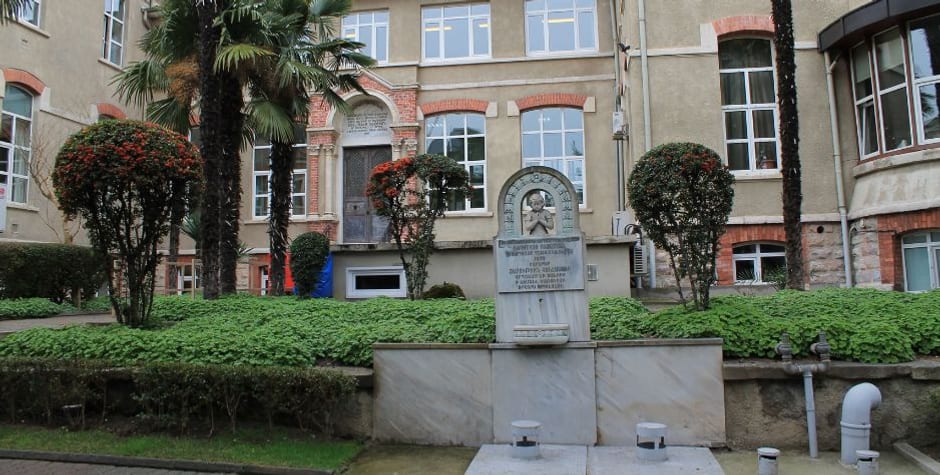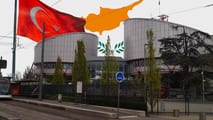

Expropriation in Turkey: an Armenian foundation deprived of its property
Turkey: Armenian Foundation Deprived of its Property
Turkey is pursuing a silent, methodical policy of expropriating assets belonging to Christian communities. A new case before the European Court of Human Rights (ECtHR) illustrates this once again: the Saint Saviour Armenian Hospital Foundation, an almost two-hundred-year-old institution, is being refused title to a plot of land that has been recognised as its own since the Ottoman era. The ECLJ, which the Court has authorised to intervene in the proceedings, denounces anti-Christian religious discrimination.
Founded in 1832 by decree of Sultan Mahmud II, the Saint Saviour Armenian Hospital Foundation, located in the Yedikule district, has long embodied the solidarity and resilience of Istanbul’s Armenian community. It is important to distinguish the hospital—opened in 1834 and accessible to all regardless of religion—from the foundation that manages it and safeguards a real-estate and cultural patrimony built up over generations through donations and bequests from Armenian benefactors.
This patrimony—comprising hospital buildings, adjoining churches, old housing and a few plots—funds the Foundation’s social work: free care, assistance to the elderly, and support for vulnerable families. Far from being a source of profit, it is above all a spiritual and communal inheritance, now weakened by administrative tutelage and state practices of dispossession.
Legally, the Foundation falls under the status of a “community foundation” (cemaat vakfı), a category specific to non-Muslim minorities and governed by Law No. 5737 on Foundations (2008). In theory, it enjoys private-law legal personality. In practice, it remains under the tight control of the General Directorate of Foundations (Vakıflar Genel Müdürlüğü – VGM), a public body under the Ministry of Culture and Tourism that exercises ongoing political and administrative supervision over Christian institutions.
A court battle emblematic of the Turkish State’s bad faith
The dispute concerns a parcel in Istanbul’s Üsküdar district expressly listed in the Foundation’s 1936 Declaration, as required by Law No. 2762 of 1935. In 2012, the Foundation sought restitution under Provisional Article 11 of Law No. 5737, a provision meant to regularise properties declared in 1936 but subsequently seized. Despite the clarity of the file, the administration refused to register the land in the Foundation’s name, alleging a transfer to the Treasury during cadastral works in 1951—even though historical records attest to continuous possession.
After several appeals, the 8th Chamber of the Istanbul Regional Administrative Court (BİM) ruled for the Foundation in 2018, ordering the land to be registered in its name. Instead of enforcing this judgment, the administration sidestepped it, citing imprecise addressing, then rejected the application again. Higher courts endorsed the refusal, and in 2024 the Constitutional Court closed the case as “manifestly ill-founded”. This absurd and inequitable formalism betrays a clear political intent: to prevent Christian minorities from recovering their property. It is in this context that the Foundation has brought its case to the ECtHR (Yedikule Surp Pırgiç Ermeni Hastanesi Vakfı v. Turkey, Application No. 23343/24).
A continuing policy of expropriation of Christian community property
Since the 1974 judgment of the Turkish Court of Cassation, which retroactively interpreted all 1936 Declarations of the various foundations from the Ottoman era as fixed founding deeds, thousands of Christian properties have been confiscated. The reforms introduced within the framework of Turkey’s European Union accession process have led only to partial, slow, and arbitrary restitution. Barely 1,000 properties were returned between 2003 and 2018—a derisory figure compared with the thousands of assets still held by the Treasury.
The policy of dispossession continues today, often concealed behind real-estate or so-called “security” projects. The case of the Armenian village of Vakıflı, in Hatay province, provides a recent example. The last village in Turkey still inhabited exclusively by Armenians, its residents now face expropriation of their land and homes under a large-scale public reconstruction programme launched by the Housing Development Administration (TOKİ) following the February 2023 earthquakes. The project foresees 1,353 housing units, a shopping centre, and various infrastructure developments covering nearly half the village, including residential and agricultural areas.
The ECLJ supports the autonomy of Christian foundations against Turkish interference
The Yedikule case illustrates the persistent violation of the 1923 Treaty of Lausanne, which guarantees the protection of non-Muslim minorities. Its Articles 40 and 42 explicitly recognise the right of Christian communities to create and freely administer their religious and charitable institutions, while obliging the Turkish State to protect them. In practice, Turkey officially recognises only three minorities—Armenian, Greek, and Jewish—and even for these, protection remains largely theoretical.
Through several recent cases, the ECLJ defends the right of Christian foundations to manage their assets freely in the face of increasing State interference. These cases reveal an administrative strategy of asphyxiation aimed at depriving Christian communities of any autonomy—through the blocking of internal elections, the disguised confiscation of property under the label of “disaffected foundation” (mazbut), and the refusal to return assets duly declared in 1936.
The European Court of Human Rights has repeatedly been seized of cases against Turkey:
- Balat Rum Balino Kilisesi Vakfı ( 3984/21, pending), concerning two expropriated Greek Orthodox churches;
- Niko Mavrakis ( 12549/23, pending), concerning the arbitrary exclusion of two Greek Orthodox priests elected to the boards of community foundations, on the absurd ground that they are members of the clergy;
- Dimitri Bartholomeos Arhondoni and Others ( 15399/21, withdrawn), concerning the “disaffection” imposed on the Foundation of the Greek Orthodox Monastery of Saint Spyridon;
- Monastery of Mor Gabriel Foundation in Midyat ( 13176/13, judgment of 3 October 2023), concerning an expropriated Syriac Orthodox monastery;
- Greek Orthodox Church Foundation of Taksiarhis in Arnavutköy ( 27269/09, judgment of 15 November 2022), concerning an expropriated Greek Orthodox church.
The ECtHR must recognise anti-Christian discrimination and order the restitution of the property
In the present case, Yedikule Surp Pırgiç Ermeni Hastanesi Vakfı, the refusal to register the Armenian Foundation’s property violates both the right to property and fundamental procedural guarantees. It is through anti-Christian discrimination that the Turkish courts neither examined the evidence submitted nor provided coherent reasoning for their decisions. Yet, although the European Court of Human Rights regularly acknowledges violations of the right to property and the right to a fair trial, it has so far refrained from drawing the full consequences of such findings. The Court avoids addressing the religious dimension of these cases and refuses to order the effective restitution of confiscated properties. In its recent judgments, it merely recommends that domestic proceedings be reopened—a purely theoretical remedy in a judicial system that is slow, biased, and politically influenced.
In its written observations, the ECLJ calls on the European Court to go beyond a mere finding of a violation of the right to property (Article 1 of Protocol No. 1) and to recognise the anti-Christian discriminatory aspect of the case (Article 14 of the Convention). This time, the Court should order the effective restitution of the property. Limiting itself to a strictly procedural approach would amount to implicitly validating the religious discrimination suffered by the Armenian Foundation. The systemic nature of the problem must be acknowledged: a legal framework that enables the Turkish State to take control of Christian heritage in violation of both the Treaty of Lausanne and the European Convention on Human Rights.
The expropriation of Christian foundations: a symbol of the disappearance of Christians in Turkey
To facilitate the expropriation of Christian institutions, the Turkish State shirks its protective obligations and deliberately allows their properties to deteriorate before profiting from them. The United States Commission on International Religious Freedom (USCIRF) documents numerous violations against Christian heritage in Turkey, which it classifies into two categories:
- Human-caused damage: acts of vandalism, graffiti, treasure-hunting pillaging, illegal stone extraction, burglaries, thefts, confiscations, arson attacks, as well as assaults and intimidation targeting Christians;
- Damage due to official negligence: lack of maintenance, deliberate abandonment of sites exposed to erosion, overgrowth, fires, or earthquakes.
Through inaction, organised indifference, and eventual predation, the State orchestrates the gradual disappearance of the country’s Christian heritage—reflecting the disappearance of the Christians themselves.
Indeed, opportunities for dispossession are all the greater in the context of a dramatic demographic decline: from two million Christians at the beginning of the 20th century, only about 170,000 remain today, representing 0.2% of the Turkish population. The Armenian community numbers barely 90,000 faithful. The Greek Orthodox population, once 100,000 in 1923, has dwindled to fewer than 2,000, who collectively own through their foundations around 4,000 properties threatened by administrative seizure.
As Christian institutions lose their assets, they also lose their financial autonomy and their capacity for action. By depriving the Saint Saviour Armenian Hospital Foundation of its patrimony, Ankara is not merely targeting one institution—it is pursuing the programmed disappearance of Christianity from Anatolia. The European Court of Human Rights must now decide whether this process can continue with impunity.











